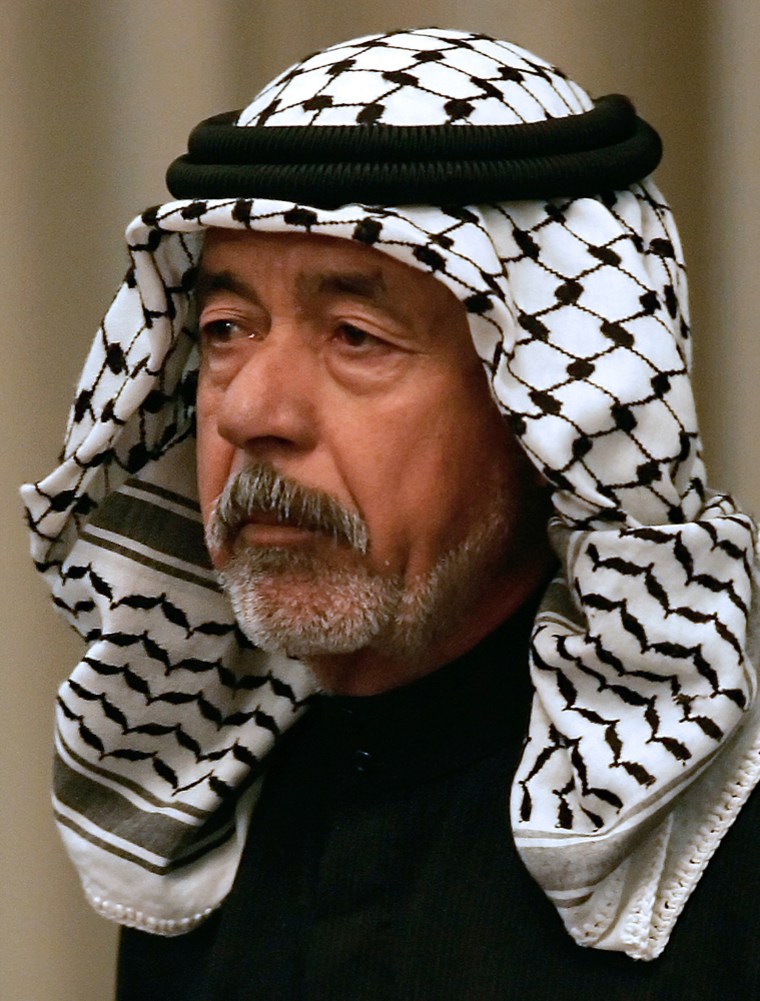A special Iraqi court sentenced Saddam Hussein's notorious cousin, known as "Chemical Ali," to death Tuesday after convicting him of crimes against humanity while crushing the 1991 Shiite uprising in southern Iraq.
Ali Hassan al-Majid already faces death by hanging after being convicted last year for his role in the killing of tens of thousands of Kurds in a crackdown in the late 1980s. But that execution has been delayed by legal wrangling.
Former Baath party official Abdul-Ghani Abdul-Ghafur also received a death sentence at the end of the trial, which began in August 2007. He shouted "down with the Persian-U.S. occupation" as the sentence was read.
"Shut up, you dirty Baathist," snapped chief judge Mohammed Oreibi al-Khalifa, referring to Saddam's Baath party.
Four other defendants received life sentences, six were sentenced to 15 years in prison and three were acquitted.
Outcry
Among those who received a 15-year sentence was former Defense Minister Sultan Hashim Ahmad al-Tai.
He is also under death sentence for the Kurdish crackdown. But al-Tai's execution has been delayed because of an outcry from his fellow Sunnis who believed the sentence was too harsh.
After Saddam's defeat in the 1991 Gulf War, Shiites in southern Iraq and Kurds in the north rose up against his regime and seized control of 14 of the country's 18 provinces. U.S. troops created a safe haven for the Kurds in three northern provinces, preventing Saddam from attacking.
But Saddam's troops marched into the predominantly Shiite south and crushed the uprising, killing tens of thousands of people.
The trial was one of five convened against former leaders of Saddam's regime, which was ousted in the 2003 U.S.-led invasion. Two are still ongoing.
In the first trial, Saddam was convicted of crimes in the killing of more than 140 Shiites after an assassination attempt against him in Dujail.
He was hanged in December 2006.
Al-Majid and former Foreign Minister Tariq Aziz are also on trial for allegedly orchestrating the bloody repression of Shiite riots after the 1999 assassination of the father of anti-U.S. cleric Muqtada al-Sadr.
Aziz also faces charges in another trial under way for officials accused in the 1992 execution of dozens of merchants accused of manipulating food supplies to drive up prices during hard economic times under U.N. sanctions.
